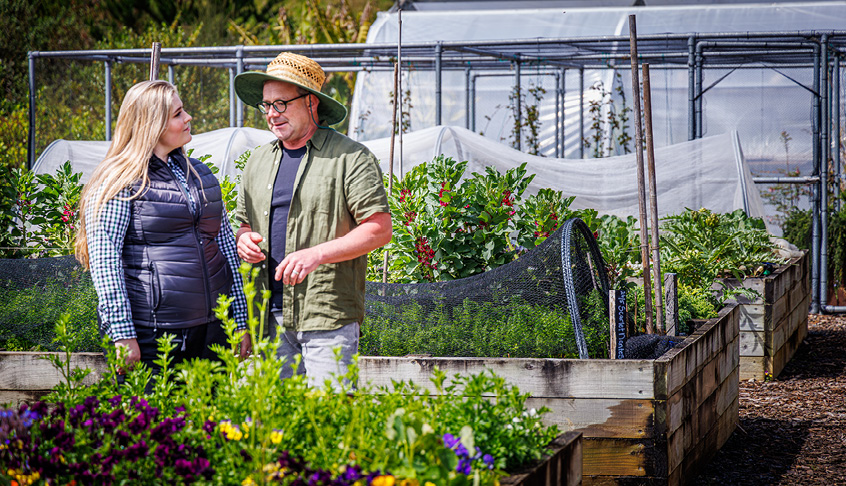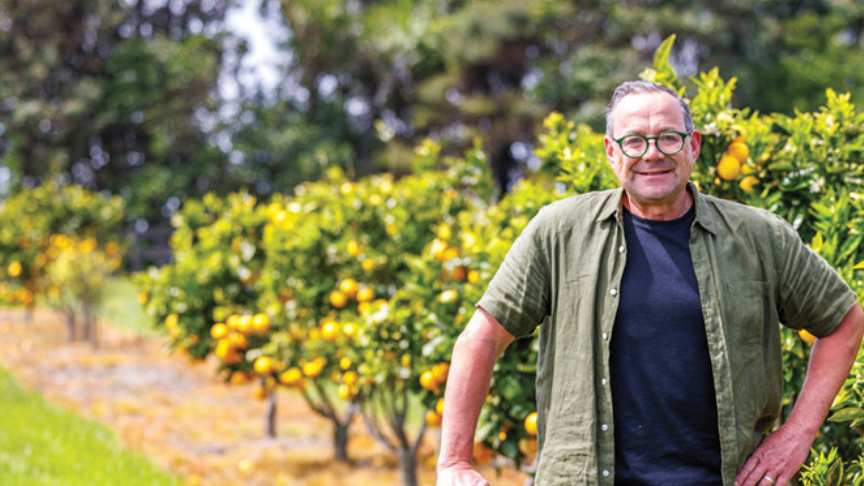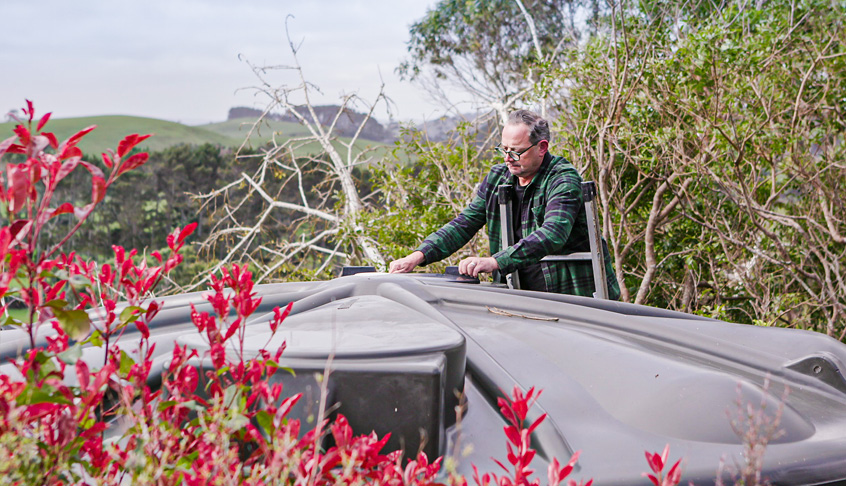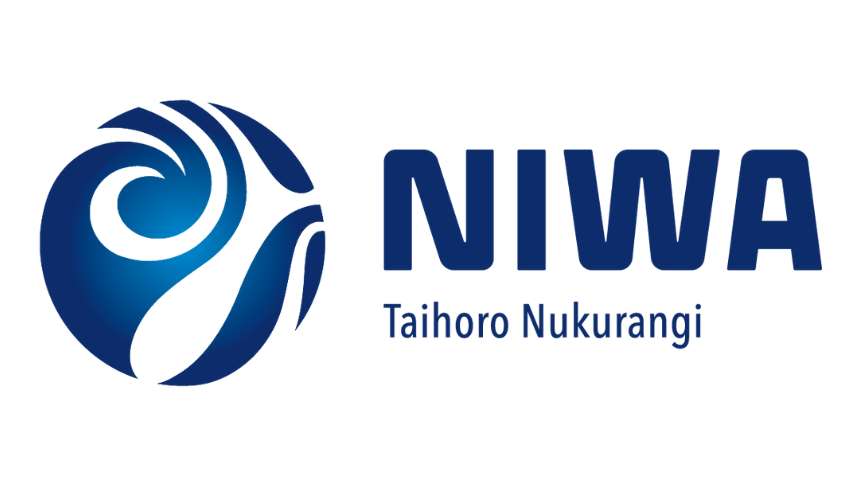Michael’s top tips on preparing for drought conditions on your lifestyle block.
Michael shares his summer tips
Irrigation
Michael’s Muriwai property boasts a spectacular garden, with raised garden beds, an orchard of fruit trees, and a large greenhouse. He knows firsthand that if you’ve got plants on your land, irrigation is vital - especially in the summer months.
That’s why Michael has recently installed a new irrigation system. A drip irrigation system is the most efficient way to reduce water use and deliver the water exactly where it needs to be.
It can also be linked to an automatic or smart timer so that you avoid watering plants in the heat of the day when a lot of water is lost through evaporation. Instead, you can make sure you water in the cooler evening hours during summer. If you also attach a rain sensor, it will only water when needed.

Mulch
Mulch is an effective tool to keep soil moisture efficient. A good layer of mulch can shield the soil from the sunlight and drying winds, enhancing the retention of moisture during summer – minimising water evaporation and sun damage.
Additionally, below the surface, soil temperatures remain cooler and more stable, reducing stress on plant roots. Mulched soils can even absorb water more rapidly.

A few key things to consider when using mulch:
- Get loads of mulch down
- Older/neutralised mulch is best (even a year or so old)
- Pea straw is great – it’s cheaper to buy by the bale if you can.
Water tanks
To ensure an adequate water supply, it is essential to manage water tanks effectively. It’s also important to understand your requirements. Michael is required by the terms of his consent to have two tanks dedicated to fire control (in addition to his designated cooking school tank).
Regular maintenance of water tanks is important, including checking the float mechanism to prevent water wastage. Keeping an eye on the water levels is essential, and utilising a reliable water timer can automate irrigation schedules. If the timer is battery-powered, it is important to ensure the batteries are properly maintained.
This is a big one. Make sure you know how much water your animals need. It’s probably much more than you think.

Average drinking water requirements for farm animals:
| Beef cattle 50 litres/day (yearlings 30 litres/day, calves 20 litres/day) | Goat 6 litres/day |
| Dairy 90 litres/day (for a 450kg cow) | Horse 45 litres/day (grazing) |
| Deer 15 litres/day (for a 125kg adult) | Pig 15 litres/day (adult with no piglets) |
| Sheep 7 litres/day (adult ewe without lambs) |
(source – mpi.govt.nz)
Keep up to date with the weather
Make sure you watch the long range weather outlook.
NIWA has a useful Seasonal Weather Outlook for three months ahead, updated monthly, which may help with planning ahead.
